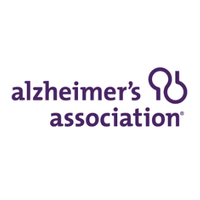
INDIANA — The Alzheimer’s Association 2023 Alzheimer’s Disease Facts and Figures report finds the burden on Indiana Alzheimer’s and dementia caregivers is growing.
The new report released today shows that while the number of estimated caregivers in Indiana remained steady at 216,000, the number of hours spent providing unpaid care grew from 276 million in 2021 to 321 million in 2022 – a more than 16% increase.

The total value of unpaid care also went up, from about $4.3 billion to nearly $5.2 billion.
The new report also reveals that Hoosier caregivers and those across the country face significant emotional, physical, and health-related challenges as a result of caregiving as well, including:
- Dementia caregivers report higher rates of chronic conditions, including stroke, heart disease, diabetes, and cancer compared to caregivers of people without dementia or non-caregivers. In Indiana, 57.3% of caregivers reported at least one chronic condition.
- The prevalence of depression is higher among dementia caregivers when compared to caregivers for other conditions. In Indiana, 34.1% of caregivers reported depression.
- Seventy-four percent of dementia caregivers nationwide report they are “somewhat concerned” to “very concerned” about maintaining their own health since becoming a caregiver. In Indiana, 18.2% report frequent poor physical health.
- Across the country, 59% of dementia caregivers report high to very high emotional stress due to caregiving and 38% report high to very high physical stress due to caregiving.

“This year’s Facts and Figures report underscores the considerable physical and emotional toll Hoosier caregivers experience when caring for someone living with Alzheimer’s,” said Natalie Sutton, executive director, of Alzheimer’s Association Greater Indiana Chapter. “It clearly underlines the need for caregiver support in Indiana. The Alzheimer’s Association offers free local support throughout our state including support groups, education, and the Association’s 24/7 Helpline. This support can be a lifeline to caregivers.”
The annual Facts and Figures report provides an in-depth look at the latest national and state-by-state statistics on Alzheimer’s disease prevalence, mortality, caregiving, dementia care workforce, and costs of care.
According to the report, there are 6.7 million people 65 and older living with Alzheimer’s dementia in the United States, including 110,000 in Indiana.
Special report finds sooner discussion of cognitive concerns needed an accompanying special report, The Patient Journey In an Era of New Treatments, offers new insights from patients and primary care physicians (PCPs) on current barriers that impede earlier discussion of cognitive concerns.
Focus groups reveal many people with subjective cognitive decline (self-reported memory concerns) do not discuss cognitive symptoms with their healthcare providers. Some of the reasons include:
- Emotional reactions and limited vocabulary impede discussions – Participants said watching a family member’s struggles with Alzheimer’s and other dementia made them more fearful, yet at the same time more tolerant, of their cognitive problems. Additionally, participants report they lack knowledge of cognitive health issues and terms to discuss the issue confidently with their providers.
- Perceived risks seem to outweigh benefits — Participants reported the risks associated with a diagnosis seem to outweigh potential benefits, especially at the earliest stages of cognitive decline. Many participants believed that their memory or thinking issues were part of the “normal” aging process. Feeling scared and anxious about the possibility of a diagnosis often resulted in avoidance and denial for many participants.
- Assumptions about what doctors will say and do — Many participants were reluctant to raise memory issues with their providers because they assumed their doctors’ first response would be to take a medication-based approach. Many preferred a more holistic approach by planning around diet and exercise instead of medication.
- Individuals want discussions that emphasize options for care — Across individual focus groups, people with SCD expressed a desire for inclusive, culturally appropriate conversations and shared decision-making with their healthcare team.
- Individuals prefer to discuss cognitive issues with friends vs. medical professionals or family – Focus group participants said talking about memory and thinking issues in a medical context elicited intense emotional responses, so participants preferred talking with their peers for reassurance and normalcy. With friends, participants said that they could “compare notes” and commiserate with a sense of humor.
Different racial and ethnic groups express concerns about care delivery and specific barriers to care which influences their interactions with healthcare providers. For example, Black Americans, American Indians, Alaska Natives, and Hispanic Spanish-speaking Americans strongly preferred holistic approaches to treatment that minimize the use of biomedical interventions or prescription medication. Black Americans, American Indians, and Alaska Natives indicated the presence of historical racism in the medical field, making many individuals feel that they do not receive adequate, culturally competent care.
Some participants also indicated that their community’s mistrust of doctors and/or Western medicine prevents them from talking to a doctor. In addition to reluctance from individuals, the report revealed PCPs are not proactively asking their patients about cognitive issues either. PCPs shared they hesitate to initiate conversations about cognitive decline and will wait until family members bring it to their attention. PCPs expressed concern about how people will be cared for if an assessment uncovers Alzheimer’s disease or other dementia in light of specialist shortages and few referral options.
Importantly, PCPs view family members as influential and critical partners in care, often relying on them to initiate conversations about memory and thinking problems they observe in their loved ones, making the role of caregivers even more significant.

“Both physicians and patients need to make discussions about cognition a routine part of interactions,” said Nicole Purcell, D.O., M.S., a neurologist, and senior director, of clinical practice, at Alzheimer’s Association.
“These new treatments potentially treat mild cognitive impairment or early-stage Alzheimer’s disease with confirmation of amyloid, so it’s really important conversations between patients and doctors happen early or as soon as symptoms occur, while treatment is still possible and offers the greatest potential benefit.”
Future outlook and opportunities
The last two decades have marked an increase in the development of a new class of medicines that target the underlying biology and aim to slow the progression of Alzheimer’s disease.
Even with that progress, access to the FDA-approved treatments for Alzheimer’s is being severely hampered. The unprecedented decision by the Centers for Medicare & Medicaid Services (CMS) not to cover payment for the drugs without patients enrolling in additional clinical trials continues to keep patients from accessing treatments. These are the only FDA-approved treatments to ever receive this restriction from CMS. The Alzheimer’s Association calls on CMS to change its decision and provide unrestricted coverage for current and future treatments to all who could benefit.
Currently, there are more than 140 unique therapies that are being tested in clinical trials that target multiple aspects of Alzheimer’s biology. As the world’s largest non-profit funder of Alzheimer’s research, the Alzheimer’s Association is currently investing more than $320 million in over 1,000 active best-of-field projects in 54 countries, spanning six continents.
According to the Facts and Figures report, the following are important to spur conversations with family
members and health care providers:
- Outreach and educational messages may empower individuals to seek help when they do become concerned about cognitive issues.
- Community-based, participatory educational campaigns are another way to reach people who may not believe their problems are serious enough to warrant a medical visit.
- A dialogue between individuals with cognitive concerns, their families, and their physicians is a crucial first step on a journey toward understanding the magnitude of the issue.
The Alzheimer’s Association offers a 24/7 Helpline (800.272.3900), which is available 365 days a year. Through this free service, specialists and master’s-level clinicians offer confidential support and information to people living with dementia, caregivers, families, and the public.



